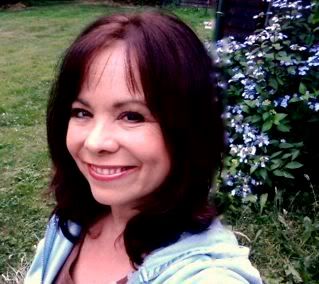validation
“You should be a writer,” I heard occasionally while growing up. This encouragement generally came from two sources: my high school English teacher and my grandmother. What the two of them saw in my essays and thank-you letters, I couldn’t fathom. I had a very specific, very clear image of the type of people who became writers. First of all, writers were male. They were pipe-smoking, alcoholic males who were crazy and/or hermits and often suicidal. I was none of those things, and I seriously doubted the world would swoon over a steady diet of “What I Did Over Summer Vacation” and “Dear Grandma, I Miss You.”
So I wrote little after college. I became a wife, then a teacher, then a stay-at-home mother. During those early days of motherhood, I more often had a diaper in my hand than a pen. But days of diapers turned quickly to first words, and then sentences, and then questions. Lots of questions. As my son grew and became inquisitive about his world, my own world expanded. I began to see truths and connections through his eyes. Life just made more sense, suddenly.
All that expanded vision needed release. I picked up a pen--and started doing so regularly. It all began flowing out, mostly in the form of a journal, but now and again in standard manuscript form: article length; six pages, double-spaced; name and address top left. I knew these little bits of writing were slightly better than summer vacation essays or thank-you notes, but I still wasn’t convinced they were reader-worthy.
On a whim, I sent one article off to a magazine. In return, I received a contract. I sent another and received a second contract. I showed the subsequent magazines to friends and we laughed together to see my byline. But I didn’t call myself a writer.
The new editor of my magazine wrote and told me he was pleased with my work. He asked me to send more articles, so I promptly sent him three more--all of which he accepted. Each time my contributor’s copies arrived, I ripped the envelope open with the excitement of a child. I loved the simplicity of the whole process: observe, think, write, send. It was all great fun—but nothing more.
Then one day my aunt brought me a large envelope she had found tucked away in her attic. Inside were dozens of letters between myself and my grandmother. Somehow, the letters written by her had made their way back to join the letters I’d sent. Somehow, they’d ended up at my aunt’s house after my grandmother passed away ten years earlier.
I spent an afternoon with those letters. My words to her recalled details I’d long forgotten--small events that loom in a child’s eyes. Her words to me recalled love. Even from a distance, her warmth had always flowed to me unhindered. Now, I felt again her support and her encouragement.
But I didn’t feel satisfaction. Instead, recalling her belief in my talent and her hopes for my future, I felt a sense of failure. There wasn't even a moment, sitting at that table, where I thought, “Grandma, you were right. I did it. I’m a writer.” I no longer believed all writers were insane, reclusive males, but I clung to an unyielding belief that real writing should be substantial. Real writing changed lives, made people think and offered hope. It wasn’t the light, breezy prattle I put to paper. I wrote about my toddler, for heaven’s sake. That wasn’t writing--that was simply an excuse to brag.
My reflective state lasted for several weeks. I stopped writing articles. I bought three books on “how to write a novel” and one on “how to name your characters.” I tried to plot a story that would simultaneously make the reader weep, inspire random acts of kindness and answer all the world’s problems.
While in this great-American-novel frenzy, I received a letter from my editor. Just passing this along to you, he wrote, referring to the second page--a photocopied letter to the editor, written in shaky cursive.
I read it quickly, snatches jumping out as though in bold print. “Thank you for the article, ‘Why Ask Why’ by writer Shannon Woodward … I am suffering from a terminal illness … I have, myself, asked ‘why’ many times … this article comforted me.”
I read that letter a dozen or more times throughout that evening. I read it again the following day, just before filing my great American novel notes and shelving my new how-to books. And I read it again for inspiration before beginning a new article--about my son, his particular view of things, and the way all that has changed me.
These days, I’m busy writing about real people with real needs encountering a real God. I’ll get back to the novel eventually. But I no longer measure my worth by genre. Regardless of what project God brings before me next, whether that’s a devotional, an article, humor, fiction or nonfiction, I know my calling.
I hope you know yours as well.
Labels: mindful living, my grandparents, writing













2 Comment:
Oh, Ken . . . you've always been such a good friend. Thank you for those beautiful comments.
If you have any thoughts at all about writing, I encourage you to do so. Just imagine what you could create adding words to your artwork. Let me know if you go in that direction.
Miss you! Say hello to Laurie and the girls.
Thank you, Bonnie. I've been meaning to write and tell you that I enjoy your blog! I'll have to scoot on over there and do that. :)
Post a Comment
Thank you for your kind, loving comment. Um ... you were kind and loving, weren't you?
Back to the home page...